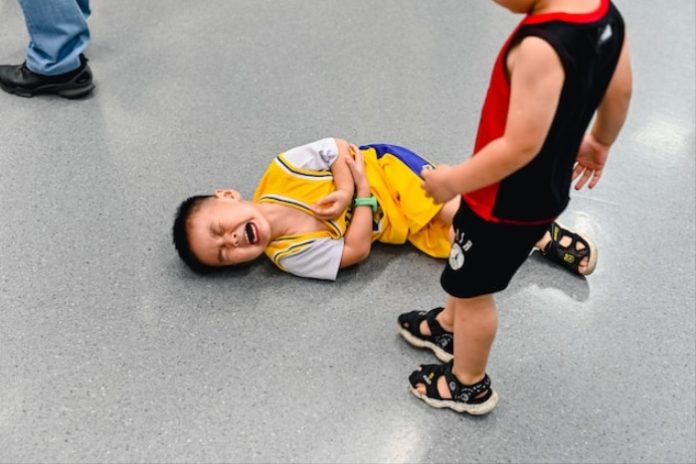Children are naturally curious and adventurous, and as a parent, you will encourage them to explore the world around them. However, you may let them go outside to play. As they play your child may get injured while playing on someone else’s property. What will you do in such an unfortunate situation?
Well, if your child has fallen on a third party’s property and sustained injuries, it’s essential to know how to protect your rights. In fact, under Texas slip-and-fall laws, you might be able to pursue a claim for the damages. Here is a comprehensive guide on the steps you should take to ensure your child receives the necessary compensation for their injuries while maintaining a respectful and amicable relationship with the property owner:
Prioritize Your Child’s Well-being
The safety and well-being of your child should always be your top priority. If your child falls and gets hurt on someone else’s property, seek immediate medical attention if necessary. Promptly address your child’s injuries, ensuring they receive appropriate medical care. Document the injuries and treatments received, as this documentation will be crucial when filing a claim.
Gather All Relevant Information
Information of how your child fell is crucial when filing a claim after your child falls on someone else property. First, it helps you establish the facts surrounding the incident, ensuring accuracy and credibility in your claim. Begin by collecting witness statements, photographs, and any available video footage to provide a comprehensive account of what transpired.
This evidence not only supports your case but also facilitates a smoother claims process by reducing disputes and uncertainties. Furthermore, it helps identify whether negligence or unsafe conditions played a role in the incident, enabling you to hold the responsible party accountable.
Communicate with the Property Owner
In many cases, the property owner may not have been aware of the hazardous conditions that led to the accident. It’s essential to approach this conversation with understanding and a cooperative attitude. Contact the property owner and discuss the incident. Provide them with the details of what happened and the injuries your child sustained.
Maintain open lines of communication and be willing to work together to resolve the issue amicably. The property owner may have insurance that can cover your child’s medical expenses, so inquire about their insurance information if applicable.
Consult with an Attorney
Hiring a personal injury attorney experienced in premises liability cases can be invaluable. An attorney can help you navigate the legal complexities involved in filing a claim, negotiate with the property owner’s insurance company, and advocate for your child’s rights. Your attorney will assess the strength of your case and guide you on the best course of action. Hire a reputable attorney to get expertise and experience in your claim.
Fortunately, you can find a personal injury attorney in whichever state you reside. If you live in Texas, for example, you can search for Texas Personal Injury Legal Team to help you seek full compensation for your medical bills, lost wages, and pain and suffering. During your initial consultation with an attorney, provide them with all the information you’ve gathered, including medical records, witness statements, and photographs..
Determine Compensation
The compensation your child may be entitled to depends on several factors, including the severity of the injuries, the extent of medical treatment required, and any long-term injury effects on your child’s well-being. Compensation may cover medical expenses, pain and suffering, emotional distress, any loss of income, and future medical expenses related to the injuries.
Your attorney will work with you to assess the appropriate compensation based on the specific circumstances of your case.
Understand Liability
When your child is injured on someone else’s property, the question of liability comes into play. Liability refers to the legal responsibility of the property owner for the injuries sustained on their premises. Liability laws can vary from one jurisdiction to another, but generally, a property owner is responsible for maintaining a safe environment for visitors.
To establish liability, you may need to prove that the property owner owed a duty of care to your child, breached this duty by failing to maintain safe conditions, or the breach of duty resulted in your child’s injuries.
Negotiate a Settlement
In many cases, personal injury claims are resolved through negotiations rather than going to court. Your attorney will engage with the property owner’s insurance company to negotiate a settlement that fairly compensates your child for their injuries.
It’s crucial to have realistic expectations during negotiations and trust your attorney’s advice on whether a settlement offer is reasonable. If you don’t reach a fair agreement through negotiations, your attorney may recommend that you pursue a lawsuit.
Wrapping up
When you follow the steps provided in this article, you can navigate the process of filing a claim to ensure your child receives the compensation they deserve while maintaining a respectful and cooperative relationship with the property owner. The key to a successful resolution is seeking legal counsel when needed to protect the rights and interests of your child. This also gives you ample time to care for your child.

